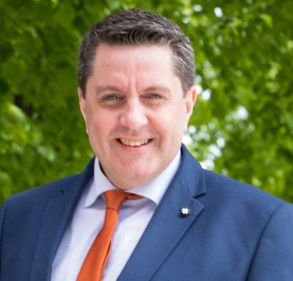FUSE is an anti-bullying and online safety programme developed by the National Anti-bullying Research and Resource Centre in DCU.
Launched across Ireland in September 2019, to date the programme has trained 439 teachers from 132 primary and post-primary schools and engaged with 13,000 students.
DCU academics are now calling for increased education and supports for young people who have been cyberbullied.

Dr Tijana Milosevic is a researcher at DCU’s Anti-Bullying Centre where she is focusing on digital media and young people’s wellbeing. She is a member of the EU Kids Online research network, which brings together 33 European countries and 150 researchers in the study of youth and digital media.
Speaking at a discussion of the Online Safety and Media Regulation Bill at a Joint Oireachtas Committee meeting on 12 May 2020, Dr Tijana Milosevic highlighted the critical importance of supports for students who find themselves the subject of bullying across platforms, and often also in offline settings.
Supports suggested include:
– ensuring that children who experience cyberbullying and harassment on platforms receive adequate psychological counselling;
– assistance with reporting the content;
– education which would promote their wellbeing and recovery, and improve social relations with their peers.
Educational Programmes
Dr Milosevic also stressed the importance of educational programmes in making a significant difference in preventing bullying and cyberbullying. FUSE anti-bullying and online safety programme is a good example of such programmes. Grounded in Irish and international best practice research, it is designed to create champions within each school who can in turn peer-train other teachers, and parents, to work with young people on how best to tackle a range of online safety and bullying issues.
FUSE anti-bullying and online safety programme
Over the course of an academic year, the programme aims to increase young people’s confidence in reporting online issues and reduce levels of bullying in schools. Collectively, this will enable school staff, students and parents, to tackle bullying and online safety together.
Research at the National Anti-bullying Research and Resource Centre in DCU shows that 86% of post-primary students who took part in the FUSE programme have reported that they are better able to recognise bullying and cyberbullying and know how to go about reporting it. Furthermore, 81% of students who completed FUSE recognise the need to tell someone and speak out about cyberbullying.
The FUSE programme is supported by Facebook and the Department of Education.

Professor James O’Higgins Norman, UNESCO Chair on Tackling Bullying in Schools and Cyberspace, and Director of the National Anti-Bullying Research and Resource Centre at Dublin City University (DCU).
Professor James O’Higgins Norman, UNESCO Chair on Tackling Bullying in Schools and Cyberspace and Director of the National Anti-Bullying Research and Resource Centre, said:
“We have seen positive results where online platforms and internet providers have partnered with educators to address online safety.
“The Online Safety and Media Regulation Bill should set out to facilitate programmes such as this, making it easier for social media and internet providers to fulfil their duty of care in relation to children and online safety through partnerships with educators and society,”
“It is often the case that cyberbullying goes hand in hand with offline bullying. Ensuring that children who find themselves in such situations have an effective remedy and infrastructural support is of great importance.”
“We welcome the focus on bullying and online safety in recent weeks and feel that ongoing discussion is needed to find ways in which we can all work together to tackle the issue.
“A number of teenagers raised some really important points at last week’s Oireachtas Committee in relation to the Online Safety and Media Regulation Bill. They highlighted a number of points that are an integral part of the FUSE programme, such as the need to educate parents. They also raised the issue of how young people do not report cyberbullying, and effective ways of reporting.
“Our findings show that the FUSE is working. Through our partnership with Facebook, we are making a significant difference for children, school staff and parents and educating them regarding how they can tackle bullying and be safer online. These points raised show how important programmes such as FUSE are.”

Dualta O Broin, Head of Public Policy at Facebook Ireland
Dualta Ó Broin, Head of Public Policy at Facebook Ireland said:
“With continued support and collaboration, we hope to be in a position to bring this programme to more schools across the country.
“We take a zero-tolerance approach to bullying on Facebook and Instagram. Our Community Standards provide additional protections for minors in areas such as bullying and harassment and image privacy.
“We also work with experts like the Anti-Bullying Research and Resource Centre to support and fund initiatives such as FUSE and to develop tools to help people have a positive experience on our platforms. Collaboration between industry, experts, schools and government is central to addressing this important issue.”
SOURCE: Materials provided by DCU
Note: Content may be edited for style and length.